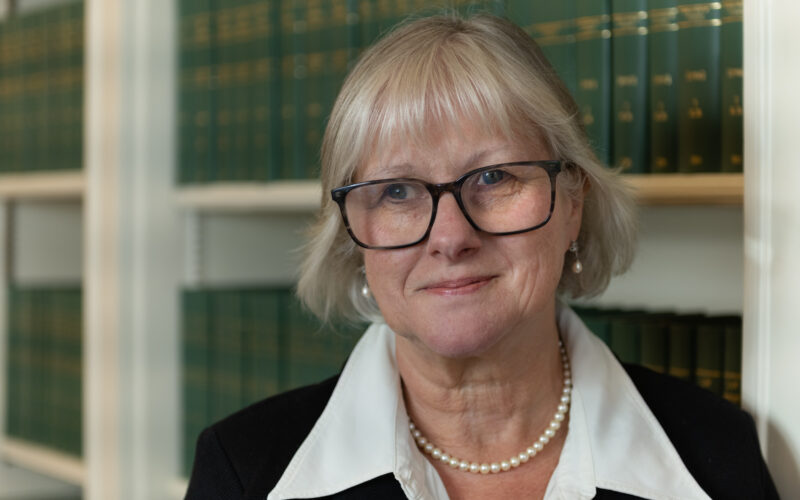Penelope Reed QC and Tracey Angus QC appear in Cowan v Foreman [2019] EWHC 349 (Fam)
The High Court has dismissed an application for permission to proceed with a claim under the Inheritance (Provision for Family and Dependants) Act 1975 in Cowan v Foreman [2019] EWHC 349 (Fam).
The Claimant Mary Cowan brought a claim against the estate of her deceased husband Michael Cowan. Probate of the deceased’s will was granted to the first and ninth defendants to the proceedings on 16 December 2016 and the application was made on 8 November 2018, making it some 17 months out of time. On death, the deceased’s estate was worth a little under £16m.
Under the deceased’s Will:
- He left some relatively modest pecuniary bequests to his son, daughter-in-law and stepsons.
- He put all of his business interests which qualified for 100% IHT business property relief into a ‘business property trust’. This was a discretionary trust of which the beneficiaries were the Claimant, other members of his family, a charitable foundation (of which the first and eighth defendants were trustees), other charities and any persons added by the trustees.
- He gave all his personal chattels to the Claimant.
- He gave all the rest of his property to a residuary trust of which the beneficiaries would be the same as for the business property trusts, but subject to a revocable life interest in favour of the Claimant. There was power to advance capital to the Claimant from that part of the residuary fund from which the Claimant was entitled to income (all of it absent a partial revocation).
Mostyn J’s judgment sets out a number of legal principles regarding permission applications:
- The Judge referred to Nesheim v Kosa [2006] EWHC 2710 (Ch) in which Briggs J (as he then was) held that the time limit for claims under the Inheritance Act exists for a particular purpose, namely to avoid unnecessary delay in the administration of estates caused by the tardy bringing of proceedings under the Act and to avoid the difficulties which might be occasioned if distributions of an estate are made before proceedings are brought, requiring possible recoveries from beneficiaries if those proceedings, once brought, are successful. Mostyn J held that, in addition, the time limit must be there to protect beneficiaries and the court from being burdened with stale claims, whether or not the estate has been distributed.
- He held that a robust application of the power to give permission for out of time claims to proceed would be consistent with the spirit of the overriding objective and would echo the relief from sanctions jurisprudence as contained in Denton v TH White Ltd & Others [2014] 1 WLR 3926. In the modern era of civil litigation, the limit of excusable delay should be measured in weeks or, at most, a few months.
- He held that the decision made by the court as to whether or not to give permission is not one of discretion but rather the making of a qualitative or value judgment. Fundamentally, the court must be satisfied that the claimant has shown (a) good reasons justifying the delay and (b) that she has a claim of sufficient merit to be allowed to proceed to trial. All Counsel were agreed that the latter imported the summary judgment test under CPR r. 24.2 such that the Claimant was required to show that she had a ‘real prospect’ of succeeding substantively.
- The court held that the use of standstill agreements in Inheritance Act claims is inappropriate, as it is not for the parties to give away time that belongs to the court. If parties wanted to agree a moratorium for the purposes of negotiations, the claim should be issued in time and then the court should be invited to stay the proceedings whilst negotiations are pursued.
On the facts, Mostyn J dismissed the claim as:
- Had the deceased’s marriage to the Claimant ended in divorce rather than death, it could be confidently be said that the Claimant’s claim would have been dealt with by reference to her needs, rather than the sharing principle.
- There was nothing to suggest that the trustees of the deceased’s Will would not adhere to his wishes (as expressed in a letter of wishes) that the Claimant should be the principal beneficiary of both the business property trust and the residuary fund (subject in the case of the business property trust to two funds of £500,000 being set aside for other family members). The court held that if the trustees did defy his wishes that every reasonable need of the Claimant should be met until her death ‘it would not only be completely immoral but would likely amount to a breach of trust’. Therefore, the claimant had not demonstrated she had a claim of sufficient merit to proceed to trial.
- The Claimant had further not demonstrated any good reasons for the delay in making her claim.
Penelope Reed QC acted for the Claimant and Tracey Angus QC acted for the First and Eighth Defendants.
You can find a copy of Mostyn J’s judgment here.



